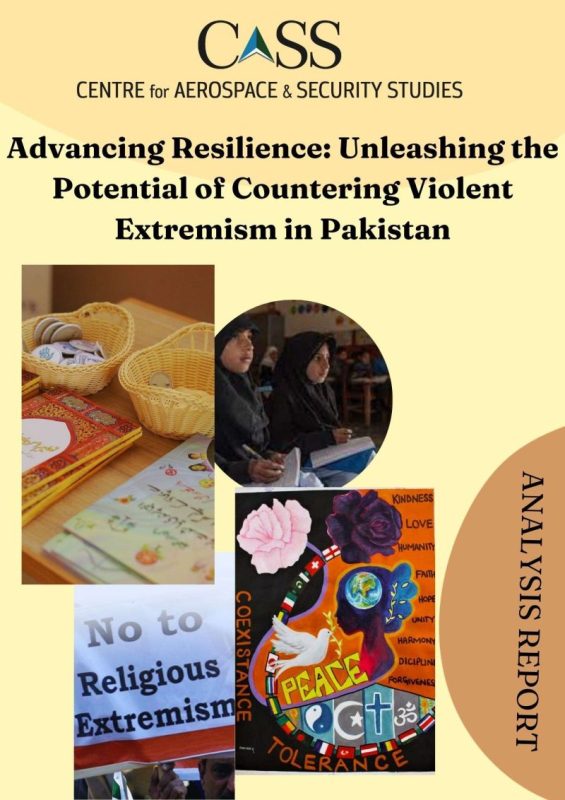Countering Violent Extremism (CVE) involves a broad range of non-combative measures taken by governments and Civil Society Organisations (CSOs) focused on curbing the various multifaceted drivers and causes of violent extremism. Over the years, the concept of CVE has gained significant traction in the global realm. The United Nations Security Council in its resolution 2178 (2014) underscores CVE as an essential element to address the threats pertaining to global peace and security.
In recent years, the national security apparatus of Pakistan has also extended due credence to CVE measures. The underlying belief is that hard measures, when instituted in isolation, are inadequate to eliminate the religious extremism which is a key driver of terrorism in the country. Consequently, sustainability of any counterterrorism effort would remain questionable sans a viable CVE policy. The 2018 National Internal Security Policy of Pakistan (NISP) aimed to address the presence of a conducive environment for violent extremism in the country. It outlined a range of measures designed to tackle this issue. Another noteworthy initiative, reflecting a shift in focus from previous approaches centred on hard measures, was the National Counter Extremism Policy Guidelines (NCEPG) introduced by National Counter Terrorism Authority (NACTA) in 2018. This policy was widely praised as a means to foster inclusivity, connectivity, peace, and harmony within society. Furthermore, the Revised National Action Plan (RNAP) recognised CVE as a crucial component of its strategy in addressing the growing threat of violent extremism.
Despite having the necessary policy framework in place, Pakistan has struggled to fully implement comprehensive measures to counter extremism. While significant progress was made in curbing terrorism through the kinetic measures employed during Operation Zarb-e-Azb, extremist tendencies within society persist and, in some cases, have even intensified due to various influencing factors. One major issue is the absence of a robust counter-narrative capable of dismantling the ideology propagated by extremists.
Currently, Pakistan is confronted with a renewed wave of religious militancy, posing a significant risk of further exacerbating extremism within society. In light of this pressing challenge, Pakistan must prioritise the institutionalisation of comprehensive CVE strategies. This entails establishing a framework that encourages collaborative and coordinated efforts between the government and civil society. The primary objective should be to safeguard vulnerable populations from the perils of radicalisation, while simultaneously fostering local resilience to disrupt any facilitation provided to extremists.




